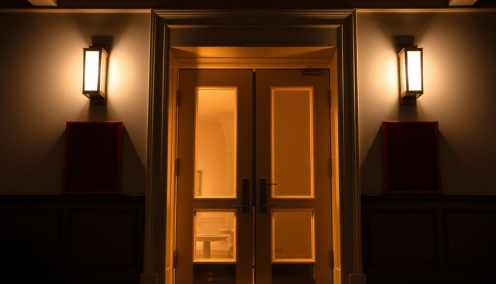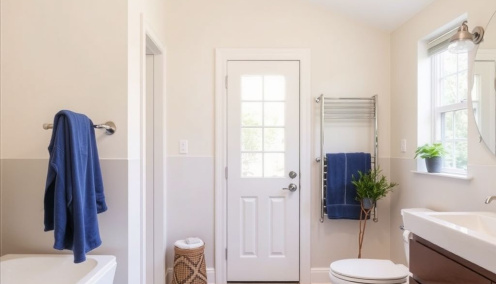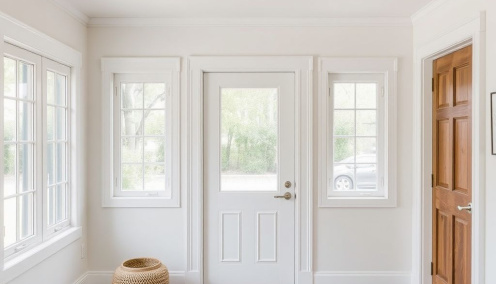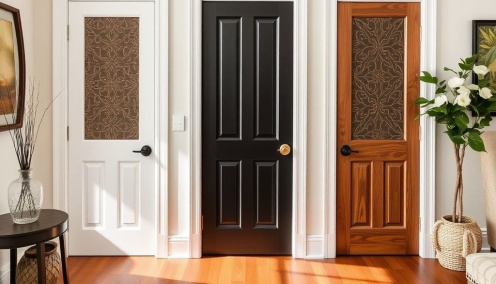Blog
When to install fire-rated doors for building safety
| Monolith Design
Install fire-rated doors in any wall designed to restrict fire spread, specifically in rated corridors, stairwells, and enclosures for hazardous areas like boiler rooms or storage closets with significant combustibles. The Ontario Building Code (OBC) and National Building Code of Canada (NBC) mandate these doors in locations where a fire barrier with a 1-hour or greater rating is specified. This is not a suggestion; it is a legal requirement for occupant safety and…
Why bathroom door ventilation matters for your home
| Monolith Design
Install a door with a ventilation grille or a gap of at least one inch at the bottom. This simple step prevents moisture from being trapped inside the bathroom, a primary cause of mould growth and structural damage. In Canadian climates, where indoor heating runs for much of the year, the temperature difference between a steamy bathroom and a cooler hallway creates a pressure differential. A properly vented door allows this moist air to escape, actively pulling it…
Matching interior doors to window frames a style guide
| Monolith Design
Select door profiles that mirror your window casings for a unified room design. For example, a flat-panel interior door complements the clean lines of modern, vinyl-framed windows common in Toronto condominiums. In contrast, a six-panel Shaker style door aligns with the traditional wood window frames found in many Ottawa and Montreal heritage homes. This direct visual link between openings establishes a consistent architectural language, making the space feel inten…
Restore vintage interior doors and keep their charm
| Monolith Design
Strip paint layers with a heat gun set below 500C, moving constantly to avoid scorching the wood. For intricate details, a chemical stripper applied with a natural bristle brush lifts old varnish from mouldings without damaging the softwood. Once bare, inspect the door for shrinkage; a common issue in Canadian homes is a 3-5mm gap at the top of panels due to our dry winters. Fill these with a tinted beeswax stick, not wood filler, which allows for natural expansion…
Personalize interior doors with decorative panels ideas
| Monolith Design
Replace your flat, hollow-core doors with a paneled model featuring a solid wood frame and a honeycomb paper core. This specific construction provides a stable surface for finishing while keeping material costs 40-50% lower than solid wood. For a durable, low-maintenance option, consider doors with a PVC-based finish in matte white, which resists scratches and fading, a practical choice for homes in humid climates like Vancouver or for high-traffic areas in a famil…




